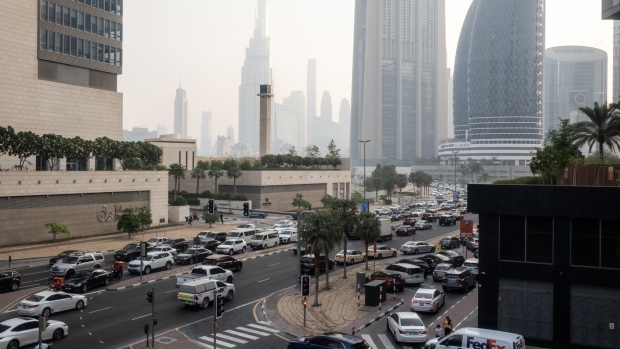May 6, 2024
Dubai’s Financial Center Expects ‘Busiest Year’ as Firms Rush In
, Bloomberg News

(Bloomberg) -- Dubai’s financial center is expecting a record number of firms to set up in the Middle East business hub this year after attracting hedge fund heavyweights such as Millennium Management and asset managers like State Street.
“This year is going to be our busiest year ever,” Ian Johnston, the chief executive officer of the Dubai Financial Services Authority, said in an interview. The regulator of the Dubai International Financial Center issued 117 new financial services licenses in 2023, and this year “we are already about 50% ahead of where we were this time last year,” he said.
The freezone’s rise in activity mirrors Dubai’s economic resurgence following the Covid pandemic. The city has also attracted a range of newcomers including Russian billionaires, property investors and crypto firms seeking a low-tax environment.
“Of the 29 globally systemically important banks in the world, we have 27 doing business in DIFC,” Johnston said. A fifth Chinese bank is setting up a branch, he said, without identifying the lender. Over 600 financial services firms operate within DIFC, employing more than 40,000 people, state-run WAM news agency reported in February.
The regulator has added around 50 to 60 new staff members to keep up with the influx of all the new businesses over the past couple of years, according to Johnston.
“We took the opportunity last year to restructure our operations and to introduce a dedicated licensing team to further help with the new people that are coming in to the market,” he said.
Hedge funds from both the West and the East are relocating to Dubai, Johnston said. “It’s balanced,” he said, without disclosing the region-wise split of the firms.
Dubai is emerging as a favored destination for hedge fund traders who are drawn by its ease of doing business, tax-free status and its allure as a global travel hub. It is also a more friendly time zone for portfolio managers who have global investments spanning North America to Asia. Less than a two-hour drive away, Abu Dhabi, is also making a push to attract more foreign money and financial firms.
The United Arab Emirates’ exit from a global watchdog’s “gray list” has made it much easier for banks to do business. “It is actually better for customers because the banks become less invasive in terms of the due diligence that they have to do,” he said. The Gulf state exited Paris-based Financial Action Task Force’s dirty money list in February, after a push by local authorities to clamp down on illicit financial flows.
--With assistance from Nicolas Parasie.
(Updates with number of new staff in fifth, sixth paragraphs. An earlier version of this story corrected the number of licenses issued by the DIFC.)
©2024 Bloomberg L.P.





